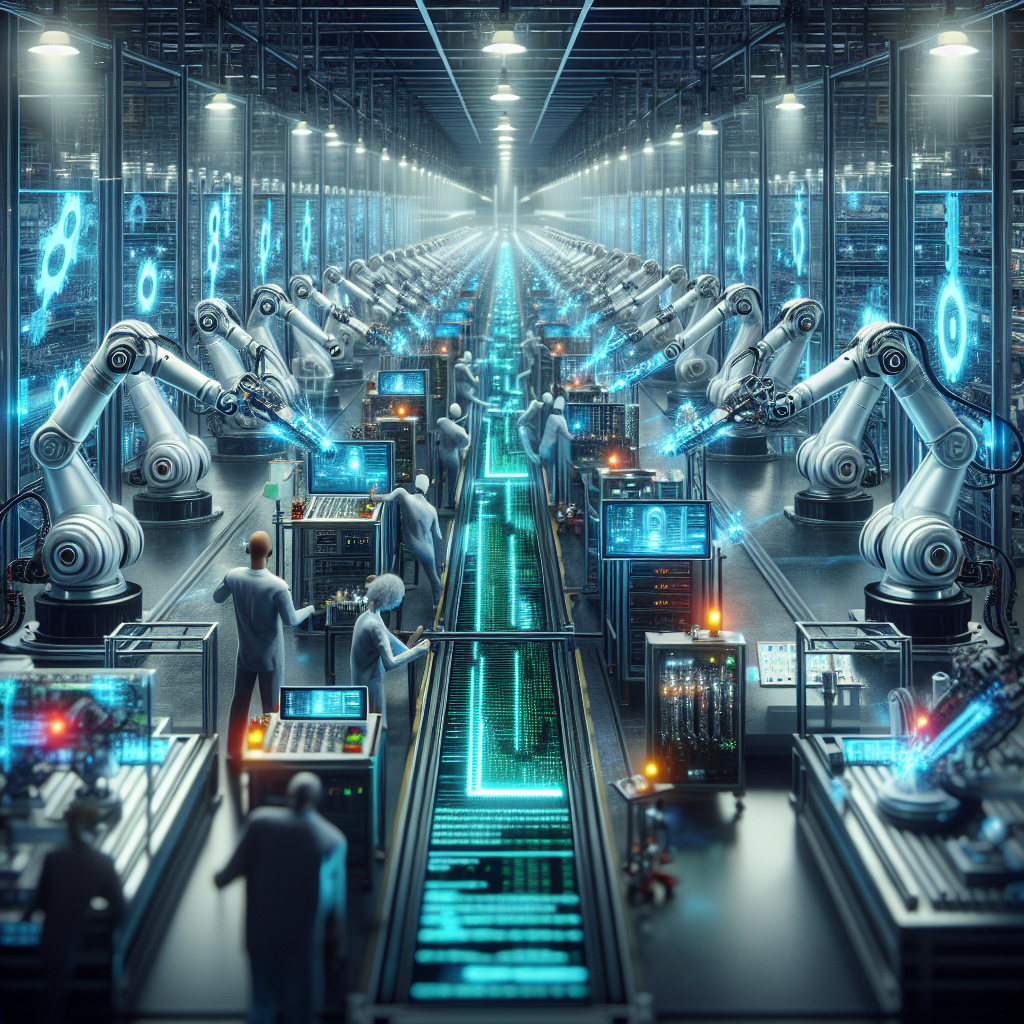Generative AI: A Key Player in Manufacturing Transformations

We are witnessing a significant shift in the manufacturing industry. How can Artificial Intelligence (AI) innovate further? The advent of Generative Artificial Intelligence (GenAI) is set to bring a new wave of potential. In this article, GenAI refers more broadly to AI applications based on a mix of traditional AI and pure GenAI.
Generative AI enhancing more traditional AI
Traditional AI has shown its strength in large-scale manufacturing processes such as predictive maintenance, defect detection, and process optimisation. For example, AI system can recommend when to maintain a product, when to stop the production to fix defects, and how to change the production schedule to maximize the throughput. These AI systems discover repeatible patterns and therefore require large consistent data to be properly developed and back-tested.
However, when it comes to diverse production lines or hyper-personalised products within the same production line, the AI solutions often need to be contextualised. For example, a process optimization system for a unique production line would need to be developed and backtested on its limited available data. That could result in less effective AI models, also requiring their own development and operations, resulting in a much higher cost and time to develop and maintain the solutions. An example is predictive maintenance applied to a small production line, with a small number of recorded breakdowns that took place for different reasons. The AI model will likely be unable to discover any meaningful patterns.
An alternative would be to empower the user to make well-informed decisions, based on both findings from the data itself and contextual information such as manuals, past reports and even external sources. That way, the same AI model could be reapplicable across different production lines and hyper-personalized products. This is now possible thanks to GenAI as it stands apart with its ability to learn from irregular data, providing a broader and enriched context. Its most significant feature is personalisation, tailoring its responses to the specific needs of a user or situationy. Essentially, it enables its users to interact with the information and leverage their expertise to make data-driven decisions.
New AI applications in the Manufacturing Industry
New applications using GenAI can impact not only the production line but also a wider range of use cases. This transformative technology empowers various individuals involved in the manufacturing process, including production supervisors, stakeholders, engineers, developers, and other employees.
Examples of applications that tackle substantial industry challenges and enhance productivity and efficiency include:
-
Empowering Factory Supervisors to make better-informed decisions. Factory supervisors have leaned on AI for tasks such as predictive maintenance, defect detection, and process optimisation. GenAI augments this support by offering in-depth insights and comprehensive background information, enhancing the decision-making process and leading to better efficiency in managing diverse and intricate production lines. The insights can be based on both qualitative knowledge and quantitative process information.
-
Empowering Employees with GenAI. GenAI isn’t beneficial just for supervisors and application developers; it has significant implications for all employees within the manufacturing industry. Its capability to process and analyse extensive data, both internal and external, provides employees with the necessary information for their roles. This enriched information empowers employees to make informed, data-driven decisions, thereby improving their effectiveness and contributing to the overall efficiency of the manufacturing process.
-
Empowering developers of new software applications. In the fast-paced manufacturing sector, GenAI is a game-changer in software application development. Its ability to quickly digest extensive data allows it to rapidly identify and suggest the implementation of new functionalities. This leads to a streamlined development process, more efficient coding, fewer errors, and an enhanced end product. Notably, GenAI’s suggestions are context-specific, making them timely and relevant in the face of rapid manufacturing changes, thereby driving innovation in software application development.
Moreover, GenAI can automate routine tasks, such as coding and bug detection, freeing developers to focus on more complex and creative aspects of the project. This not only enhances productivity but also fosters innovation. In short, GenAI is set to transform application development, making it smarter and more streamlined.
The Journey Ahead
Despite its potential, integrating GenAI into the manufacturing landscape brings its own set of challenges. These include the need for definitive use cases, greater transparency in AI models, and the ethical use of AI. Despite these challenges, the potential of GenAI in revolutionising the manufacturing industry is unquestionable. As we continue to develop, refine, and regulate this technology, we’re likely to witness a new era of manufacturing driven by intelligent, personalised, and efficient AI systems.
In conclusion, Generative AI could very well chart the course for the future of manufacturing. As we navigate this thrilling period of technological innovation, the potential of AI to transform industries continues to reveal itself. Have you observed any similar applications in your industry?